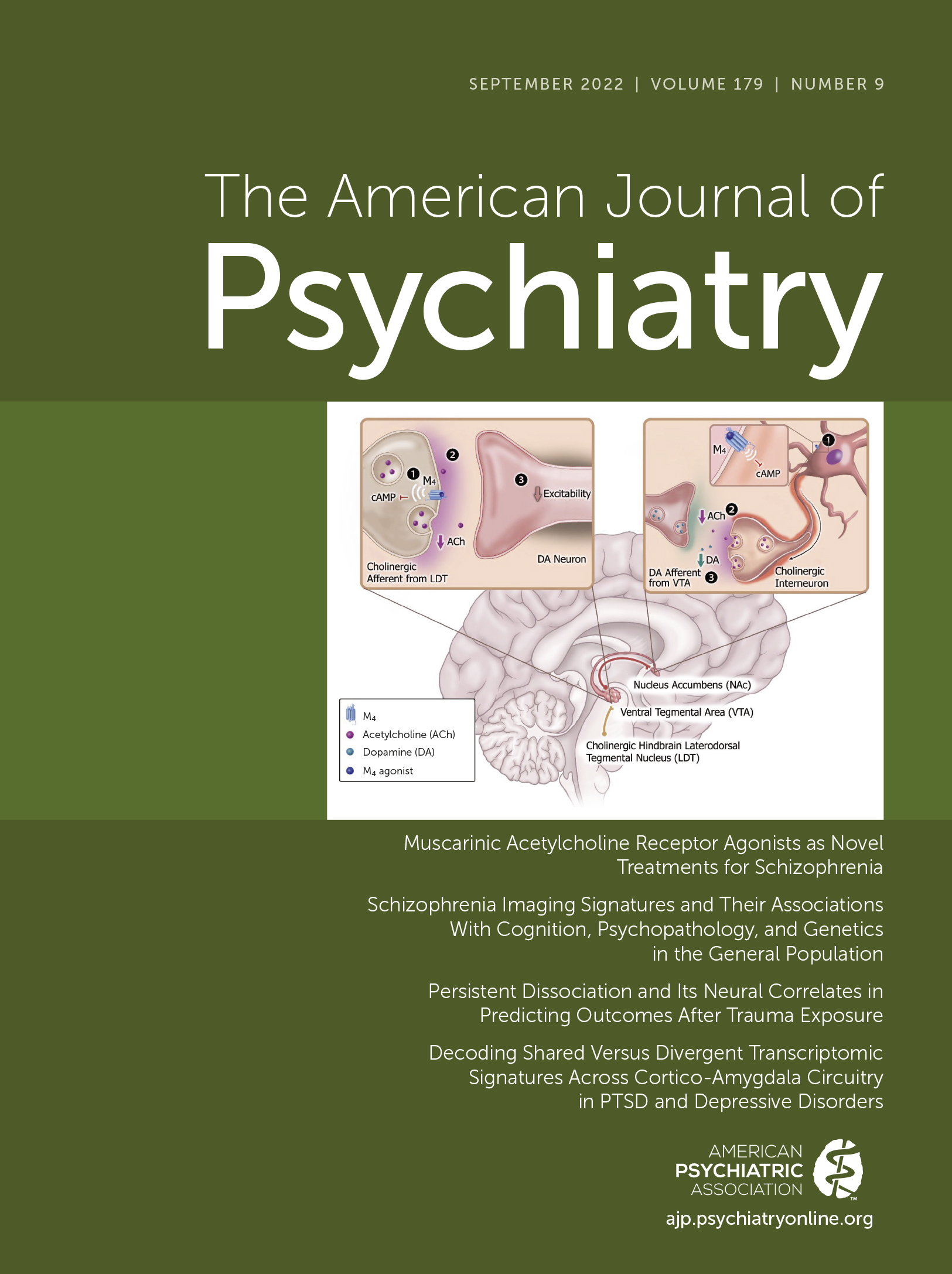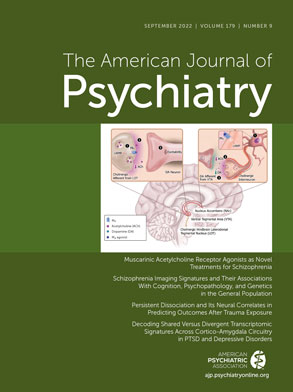Thank you, Maria, for your gracious introduction, your leadership at APA and in Consultation-Liaison Psychiatry, and most of all, decades of collegiality and friendship.
It is so heartwarming to be together in person again for the first time since 2019! What a joy it is to reconnect with friends and colleagues we have not seen in far too long, and to form new relationships. Welcome back!
The last time that we were together in person for our Annual Meeting, in San Francisco, we had no idea that a global pandemic was just around the corner, bringing with it the most disruptive—and defining—global event of a century. In the beginning, we—perhaps naively—looked forward to returning to what we once knew as “normal.” But the pandemic raged and rolled on.
Now, 3 years after we were last together in-person and as we emerge from pandemic to endemic, let us take a moment to recognize the devastating loss that COVID-19 has left in its wake: more than one million lives lost in the United States alone, and more than six and a quarter million documented lives lost globally, a number that most certainly underestimates COVID-19-related fatalities.
Please join me in a brief pause to recognize those we have lost.
The effects of COVID-19, however, as we are just beginning to fully appreciate, are not limited to physical illness. Some of the psychiatric consequences of COVID were to be anticipated, for example, based on the historical emergence of neuropsychiatric sequelae following widespread outbreaks of viral illness. Others, such as the racial disparities in our society laid bare by the pandemic, are but one stark example of health inequity in the United States and the necessary and painful journey ahead of us to achieve health equity and racial justice.
And yet other emerging mental health data in the era of COVID-19 close the door on any doubt that we are indeed in the midst of a twin pandemic, a mental health pandemic. The challenges before us—as citizens and as psychiatrists—are daunting. As 2022 began, Americans expressed concern about their mental health with 25% making resolutions to improve it. Suicide deaths increased in 2021, we lost more than 100,000 Americans to opiate overdose, and our youth—in particular—are reporting unprecedented levels of anxiety, depression, and psychological distress. Yet when Americans seek mental health care, it often cannot be found, much less in a timely fashion.
Meanwhile, psychiatrists are struggling to practice within a health care system characterized by a shortage of psychiatrists, low reimbursement compared to other physicians for the same care and services rendered, and administrative practice burden. Our workforce lacks the diversity required to reach its potential and to provide high-quality, evidence-based care to the increasingly diverse population we serve.
In addition, while practice demands and costs increase, physicians are reporting high rates of burnout, our next generation of psychiatrists is entering practice with unprecedented education debt. According to the AAMC, nearly three-quarters of medical school graduates in 2021 had education debt, with an average of more than $200,000.
Finally, while we have made great strides in advocacy for mental health, parity remains elusive. We know there is no health without mental health, yet insurers continue efforts to effectively limit access to mental health care on par with all other health care through opaque internal procedures, loopholes, and exclusions.
We cannot and must not just stand by or, worse, retreat in the face of these substantial challenges to our profession and those we serve. Instead, faced with these current challenges before us—and those of which we are not yet aware—we must seize existing and create new opportunities to advance psychiatry and mental health care. There is no doubt that this path ahead will be hard work requiring bold ideas and interventions.
Yet we must embrace this time of challenge and need as a once-in-a-lifetime opportunity for psychiatry and our APA to lead in ensuring that mental health, once and for all, permanently establishes its place as an integral part of overall health on par with all other medical care. In this vein, I hope that you will each join me as we spend the next year charting “a roadmap for the future.” We have a lot of work to do!
Building on the work of my predecessors: Dr. Schwartz on interprofessional collaboration, Dr. Geller on structural racism and psychiatric bed needs and shortages, and Dr. Pender on the social determinants of mental health, a roadmap for the future must incorporate three critical priority areas: public facing activities, profession and psychiatrist supporting and promoting activities, and policy initiatives.
APA’s public engagement is critical at this time when Americans are experiencing heightened mental health symptoms and when mental health and wellness have prominence on the national agenda, from the White House and the Capitol to state capitals and local government. We owe it to ourselves, and to the patients we serve, to ensure that APA and psychiatry are not just a part of the conversation, but drivers of information and treatment of mental health and substance use disorders.
To meet the mental health needs of every American, we must lead in providing evidence-based information to reduce stigma and use an equity lens to promote access to high-quality care to the underserved, hard to reach, and historically excluded. Learning from the value add of telemedicine, we must continue to leverage technology to make care more accessible and effective.
Already this year, APA has launched a culturally competent Spanish-language outreach initiative, instituted public opinion polling, increased social media engagement, and fostered innovation through the publicly available app advisor. Psychiatry must continue to change the conversation around mental health to reduce stigma, encourage treatment, and save lives.
We must clearly define our roles as medical doctors with unique and extensive knowledge, training, skills, and professional responsibilities to patients as we join in implementing and publicizing the availability of the new, national, Mental Health Crisis Hotline number 988—which goes live this July 16.
Second, APA must support our more than 37,000 member psychiatrists dedicated to improving the lives of people with mental illness and substance use disorders. We have substantial challenges ahead for our profession. There are not enough psychiatrists to serve the population now and the gap will continue to grow into the future. We must end the structural stigma of lower reimbursements for psychiatrists for the same services rendered and codes billed by other physicians.
We must continue to advocate for patient safety by opposing expansion of prescribing and independent practice to mental health colleagues without medical knowledge, training, and experience, and we must continue to fight discriminatory administrative burdens for mental health care that simply do not exist for other medical care. Instead, we must continue efforts to reintegrate with the house of medicine to reverse the negative effects and stigma of carve-outs. There is no health without mental health.
Fighting stigma begins at home, and we must once and for all end discriminatory credentialing and licensing questions and practices that stigmatize and even punish physicians who self-disclose a past history of mental health treatment that does not affect current ability to practice. We must work to ensure that we support, foster, and advance diversity in the profession of psychiatry to expand our professional capabilities and meet the needs of an ever more diverse society.
Finally, we as psychiatrists must be vocal advocates for the laws, regulations, business, and social structures that advance mental health and sound medical practice. We must fight against racism, discrimination, and hate as toxic to health, psychological wellbeing, and humanity itself, and we must continue to fight government intrusion in medical care—most recently reproductive care—that belongs solely within the province of the physician-patient relationship.
Our advocacy must continue to secure funding for mental health services and innovation to ensure that every American has access to high-quality, evidence-based care.
Perhaps charting and implementing this roadmap for the future seems too lofty for a 1-year term for an APA president. If you’re sitting there thinking that, you are not alone. But we have no choice. There is no greater opportunity to lead and to succeed than in this time of unprecedented need for mental health care and resources. We will have to work hard, we will have to focus, and we will have to be innovative and creative.
But there is no more urgent time to rise to the challenge than now. Over the next year, I will report out on more specifics and on our progress for the future of psychiatry through my monthly Psychiatric News columns. In the meantime, I invite you to share both your challenges and innovative ideas to create opportunity to advance psychiatry and those who we serve.
Thank you for your confidence in bestowing on me this extraordinary honor to lead our APA and our profession into the future. Together, we will succeed.
Finally, I want to take a moment to express gratitude to the countless colleagues and friends who have supported this long journey, and especially to the members and mighty staff of the APA Ethics Committee who continually advance the right and the good over the expedient. Thank you to Dr. Levin and the APA administration for devoting your lives’ work to advancing psychiatry and mental health and your tireless support of APA’s members. Lastly, I would not be here without the love, support, and patience of my family.
I look forward to embarking on this journey with all of you and look forward to the year ahead. Thank you.

